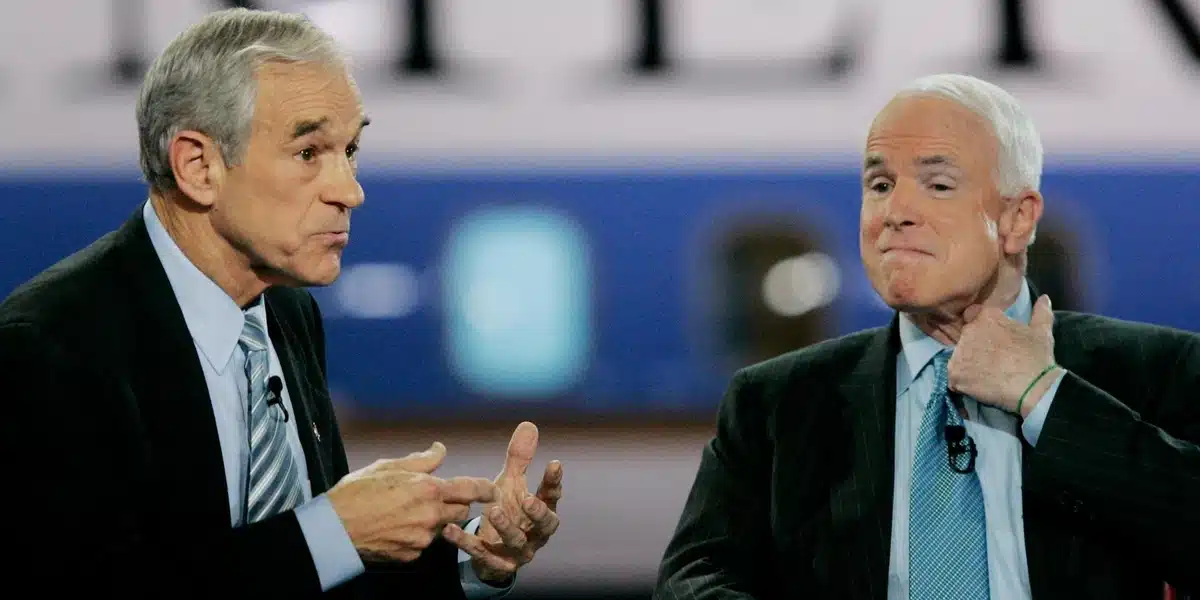Ron Paul is turning 90 on August 20. At 72, he was a revolutionary.
Today, there is a raucous foreign policy debate within the Republican Party. Populist, realist and libertarian “America First” Republicans argue against endless wars and for fiscal responsibility, while holdover hawks continue to insist on a robust U.S. hand and military presence anywhere they can get it, no matter the cost.
In 2008, there was no debate. While broad public opinion had soured on the Iraq War and President George W. Bush’s approval reached historic lows, the GOP of that era had spent nearly a decade marinating in blind support for militarism, the PATRIOT Act, and torture in the name of “counterterrorism.”
War was who Republicans were. It wasn’t a question. It was GOP identity. Sen. John McCain became the 2008 GOP presidential nominee based on that identity, and lost.
Throughout the 2008 Republican presidential primaries, Congressman Ron Paul tried to warn his party that America’s interventionist foreign policy had not only been a disaster in Iraq and Afghanistan, but was bad for America in general — and Republicans in particular.
They couldn’t hear it. Like clockwork, each time Paul criticized U.S. foreign policy during the debates, Republicans accused him of siding with the enemy. After explaining how perpetual American intervention created tension abroad that led to 9/11, Fox News moderator Chris Wallace said to Paul, “You’re saying we should take our marching orders from al Qaeda?”
Paul replied, citing the need for a congressional declaration of war, “No, I’m saying we should take our marching orders from the Constitution!”
The other candidates all laughed at Paul. Telling Republicans to tone down the warmongering in 2008 was like telling Sydney Sweeney to lighten up on sex appeal in 2025.
Paul did not win the nomination, but became arguably the most influential GOP candidate in that election precisely because he was the only Republican arguing for a more restrained foreign policy. He became one of the most popular candidates, in terms of raw grassroots support, based on his staunch antiwar message, drawing thousands of supporters to his rallies, disproportionately young.
Fair Use Excerpt. Read the whole article here.

